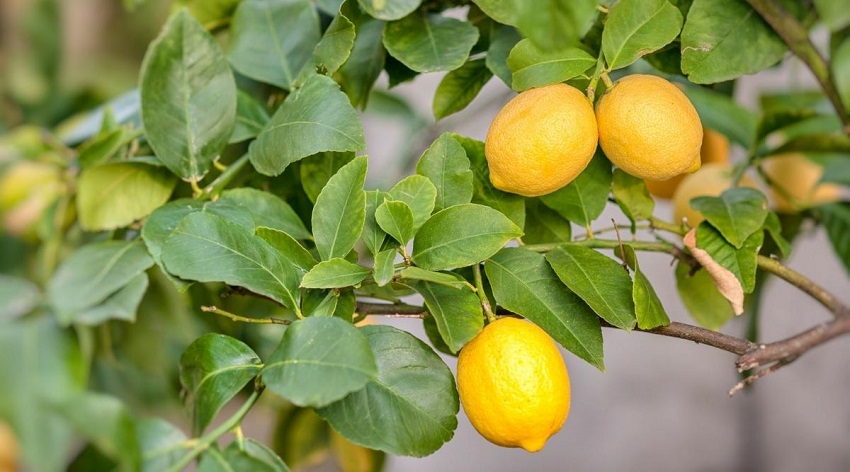Lemons are one of the most widely cultivated citrus fruit in the world, and are known for their tangy, zesty flavor that makes them a favorite in cooking, drinks, and even for medicinal purposes. But how long does it take for this versatile fruit to grow? In this article, we’ll explore the various stages of a lemon’s growth cycle, from seedling to maturity, and what factors can affect the time it takes for it to ripen into a juicy, flavorful treat.
Lemon seedlings
Like many plants, lemons start their lives as small seedlings, delicate, sprouted seeds that have just begun to grow. Seedlings typically start in a greenhouse or other protected area, where they receive ample sunlight, water, and nutrients to help them grow. It generally takes about 10-14 days for lemon seedlings to appear, which can be accelerated using a heat mat to keep the soil warm and moist. As they grow, lemon trees go through several stages of development, from seedling to mature tree. Understanding the lemon tree growth stages can help you better care for your tree and ensure a bountiful harvest.
Early growth period
After the seedlings have sprouted, they enter the next stage of their growth cycle. This phase is characterized by rapid growth, as the young plants begin to produce roots and foliage, and develop a strong canopy structure. This phase typically lasts from 3-6 months, depending on the variety of lemon being grown, and can be influenced by factors such as soil type, water quality, temperature, and fertilizer.
Read more: What are the Disadvantages of Neem Oil for Plants?
Flowering and fruiting
Once the young lemon tree has developed a robust canopy structure and established significant root growth, it will begin to produce flowers and fruit. This is the most crucial stage in the life cycle of a lemon tree, and it generally begins to occur between the second and third years after planting. During this stage, the tree will produce many small, white, fragrant flowers that eventually give way to the formation of small green fruit.
Ripening
After the fruit has formed, it will begin to ripen, which is the final stage in the growth cycle of a lemon. The amount of time it takes for lemons to ripen can vary depending on the type of lemon grown and the climate in which they are grown. On average, it can take anywhere from 4-12 months for lemons to ripen after flowering, with most varieties falling somewhere in the middle of that range. Factors such as water availability, temperature, and humidity can all affect the ripening process, so it’s important to monitor these conditions closely in order to ensure the best possible harvest.
FAQs
- Are there any specific guidelines for growing lemon trees?
- Yes, there are. When planting lemon trees, it’s important to choose the right location with proper drainage, to ensure adequate water and sunlight, to prune regularly, and to fertilize your trees at the right times of the year.
- What is the difference between planting lemon trees from seed versus purchasing from a nursery?
- Growing lemon trees from seed can be fun, but it can also be more difficult and time-consuming. Purchasing from a nursery will provide you with a more mature and established tree that will produce fruit more quickly.
- How much should I water my lemon tree?
- Lemon trees need to be watered regularly, but not over-watered. A good rule of thumb is to water your tree deeply once or twice a week, depending on the weather conditions and your soil type.
- What are some common pests and diseases that affect lemon trees?
- Some common pests and diseases include scale insects, spider mites, citrus leaf miner, and foot rot. It’s important to monitor your trees regularly and to treat any signs of infestation or disease as soon as possible.
- Can I grow lemon trees indoors?
- Yes, it is possible to grow lemon trees indoors, but it can be more challenging than growing them outdoors. It’s important to choose a sunny location, to provide adequate ventilation, and to take extra care with watering and fertilizing. Dwarf lemon trees are a great option for indoor growing.
In summary,
Growing lemons can be a rewarding experience, but it requires patience, dedication, and careful attention to detail. From seedling to maturity, each stage in the growth cycle of a lemon is critical, and can be influenced by a wide range of factors. By following the guidelines outlined in this article, you can increase your chances of successfully growing your own citrus trees, and enjoying the fruits of your labor for years to come.

